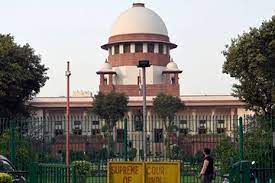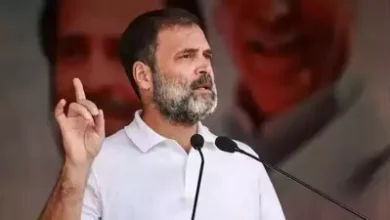Supreme Court ruling that anonymous electoral bonds violate the right to know under Article 19
NEW DELHI: The anonymous corporate donations to political parties made possible by the electoral bonds program were declared to be “violative of right to information under Article 19(1)(a)” by the Supreme Court, which unanimously dismissed the program on Thursday.

The IT Act and the Representation of the People Act, which were amended to allow for contributions via electoral bonds, were declared “unconstitutional” by a five-judge Constitution bench led by Chief Justice D Y Chandrachud.
The bench decided that as corporate contributions via electoral bonds are only provided as a quid pro quo, information regarding corporate donors must be made public.
“Allowing corporates to make unlimited contributions to political parties violated a level playing field in polls,” the Supreme Court said.
The court ruled that a “quid pro quo arrangement” may result from political parties receiving financial backing.
It also said that the goal of reducing black money does not justify information rights violations.
The court ruled that a citizen’s right to political affiliation and privacy is a part of their basic right to privacy.
The highest court ordered banks to immediately cease issuing electoral bons and ordered SBI to provide the Election Commission all information on contributions received via the program up to this point by March 6.
Additionally, by March 13, the poll panel was instructed to post the results on its website.
It was considering a number of petitions contesting the legality of the government’s January 2018 introduction of the electoral bonds program.
The Supreme Court had postponed rendering a decision in the case until November 2 of last year.
As part of initiatives to increase political fundraising transparency, the government announced the program on January 2, 2018, and it was positioned as an alternative to monetary contributions given to political parties.
Any Indian person or organization that has been incorporated or founded in the nation may acquire electoral bonds in accordance with the scheme’s terms. Election bonds may be purchased alone or in combination with other people.
Electoral bonds may only be obtained by political parties that are registered under Section 29A of the Representation of the People Act, 1951, and that have garnered at least 1% of the votes cast in the most recent Lok Sabha or state legislative assembly elections.
The notice states that a political party that qualifies may only cash electoral bonds via an account with a bank that has been authorized.
Since the Election Commission and the Center had brought up “weighty issues” that had “tremendous bearing on the sanctity of the electoral process in the country,” the Supreme Court had declined to stay the electoral bonds scheme in April 2019 and had made it clear that it would give the pleas a thorough hearing.
The four petitions, which were filed by Congressman Jaya Thakur, the Communist Party of India (Marxist), and the non-governmental Association for Democratic Reforms (ADR), were the subject of arguments that the Constitution bench, which also included Justices Sanjiv Khanna, B R Gavai, J B Pardiwala, and Manoj Misra, began hearing on October 31 of last year.
The necessity to lessen the monetary component of the voting process was brought up by the supreme court during the hearing on the case.







